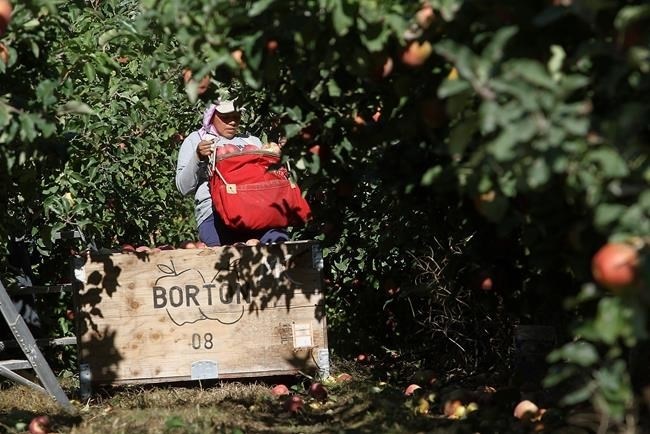Why Okanagan orchardists may have to rely more on local labour this year

The lockdown at Byland Nurseries because of confirmed COVID-19 cases amongst temporary foreign workers is not an indication that similar outbreaks will occur on other Okanagan farms.
So far, no temporary foreign workers have been allowed into Canada since a travel ban was issued March 18, despite the federal government making an exception to allow farm and other temporary workers in. The Bylands workers arrived before the ban.
“For agricultural workers, there is both a federal protocol, which was put in place on Saturday, and a provincial protocol, which we’re expecting any day,” Glen Lucas, the general manager of the B.C. Fruit Growers’ Association told iNFOnews.ca today, April 1. “That would establish the rules that would keep Canadians safe and also would protect the workers.”
The Temporary Foreign Workers program requires that workers be inspected by doctors in their home country. Given concerns about COVID-19, they will be checked for symptoms before boarding plans and upon arrival, he said.
On top of that, the federal government requires that they be isolated for 14 days, which will be in housing on the growers’ farms.
All workers in the program must have their own health care insurance. Most pay about $1 a day to buy into a Canadian group benefit plan, Lucas said.
The B.C. protocol, when it comes out, will deal with things like cleaning and safe spacing.
Most of the workers are housed in Atco-type trailers where they sleep two to a room, Lucas said, so there may be some restrictions on that, depending on the size of the rooms.
While the Okanagan hires about 4,500 foreign workers – mostly from Mexico and the Caribbean – they don’t come all at once. Some of them are needed now for planting and some pruning but the bulk of them aren’t needed until mid-June. That’s when the labour-intensive apple thinning work is done. That’s followed shortly after by the start of the cherry harvest.
Once the province gives its approval it will take a few days to arrange for charter flights as commercial travel is still prohibited. That means organizing growers and logistical problems that could delay any arrivals for a week or two, Lucas said.
Another 3,000 workers usually arrive from Quebec and from other countries (the latter are referred to as backpackers). It’s unclear how many, if any of them, will come this year.
“We are expecting a worker shortage,” Lucas said. “We’re hoping we can encourage local workers to take an interest in our industry. It’s hard work. It’s often long hours during harvest season, but, when it’s ready to be harvested it needs to be picked in shortest time possible.”
Once the harvest is in, it can be shipped overseas because the COVID-19 virus doesn’t stay on it long enough to create problems, he said.
If you're interested, you can find the B.C. Tree Fruits Cooperative Careers page here, although there aren't many farm labour jobs available there. You might find this a better place to look for those opportunities.
To contact a reporter for this story, email Rob Munro or call 250-808-0143 or email the editor. You can also submit photos, videos or news tips to the newsroom and be entered to win a monthly prize draw.
We welcome your comments and opinions on our stories but play nice. We won't censor or delete comments unless they contain off-topic statements or links, unnecessary vulgarity, false facts, spam or obviously fake profiles. If you have any concerns about what you see in comments, email the editor in the link above.


